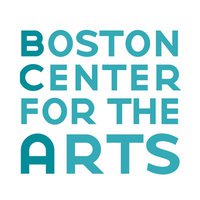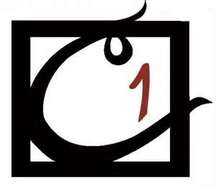 JACQUELINE LAWTON: Why did you decide to get into theatre? Was there someone or a particular show that inspired you? TYLER MONROE: Like most people, I came to theatre through acting-- and was primarily a performer for the better part of two decades. As a child, I wanted to be a movie star, so my mother carted me to a community theater audition on the same night as my local Boys and Girls club basketball tryouts. So while there were no shows that inspired me to pursue theater, I still owe an immense debt of gratitude to my mother for her support. However... if I had gone the other way that night, I might be playing point guard for the Indiana Pacers right now.... JL: How long have you lived and worked as a dramaturg in Boston? What brought you here? Why have you stayed? TM: I spent six years after undergrad working as a dramaturg and performer in Chicago before I decided to go back to school to get my MFA in dramaturgy. I ultimately decided to attend the ART/MXAT Institute for Advanced Theatre Training at Harvard University and moved out here for that. I spent a significant portion of my time during graduate school familiarizing myself with the Boston theatre community and after I graduated decided to stay. It was the small, though scrappy and self-possessed attitude that Boston theatre artists posessed that inspired me to stick around. This was just a shade under three years ago. JL: How do you define dramaturgy? Or explain it to people the work that you do? TM: I define the practice of dramaturgy as the laser-like focus on the conversation that occurs around theatre. Sure, the research, analysis, and textual support are all parts of it... but to me: It’s all about the discussion-- with artists, audiences, or with the play itself. I feel as if my job is to provide as many “entry points” into the world of the play for the people involved as possible. JL: What skills and traits do you feel a successful dramaturg should have to support the development of a new play or a production? TM: Above all, I think the ability to listen carefully to what a playwright is trying to say and asking questions to help them say this is of utmost importance. In my opinion, a dramaturg’s job is to assist the playwright in writing the play he or she wants to write-- not to offer fixes or solutions or “you should’s...”. So an inquisitive mind, a respect for the playwrights process, and a thick skin (because many times, your thoughts just aren’t going to be helpful to the playwright) are also important. JL: Now, I’d love to hear your thoughts about working in Boston. Finish this sentence ...
JL: How do you feel the Boston theatre community has addressed the issues of race and gender parity? How has this particular issue impacted you and your ability to get your work produced on the main stages? TM: For a city this size, I feel as if Boston does a fantastic job representing a multiplicity of voices on its stages-- especially at the fringe and mid-sized level. I still think this city has a ways to go before achieving true parity, but with programs like the XX Playlab, and the various companies who are shifting their programming, Boston is on the right track. JL: Tell us about the play you’re working on and what excites you about it. TM: Natalia Naman’s Old Ship of Zion [sorry, my computer wouldn’t allow italics] is a beautiful and sincere play that focuses on a church community in the south during a time of both internal and external crisis for its various members. What I love most about this play is Natalia’s wonderful faculty with language and the complete lack of irony in dealing with spirituality and the church. JL: Why should audiences attend the XX Playlab Festival? TM: Three readings of three stellar new plays by three immensely talented Boston area writers-- and with a host of exciting discussions to boot? Why shouldn’t audiences attend?
0 Comments
Your comment will be posted after it is approved.
Leave a Reply. |
My BlogI'm a playwright, dramaturg, and teaching artist. It is here where you'll find my queries and musings on life, theater and the world. My posts advocate for diversity, inclusion, and equity in the American Theatre and updates on my own work. Please enjoy!
Categories
All
Archives
June 2020
Reading List
|



